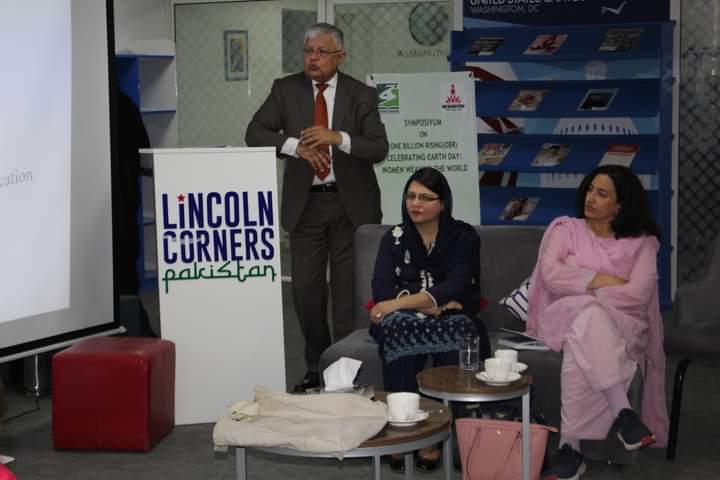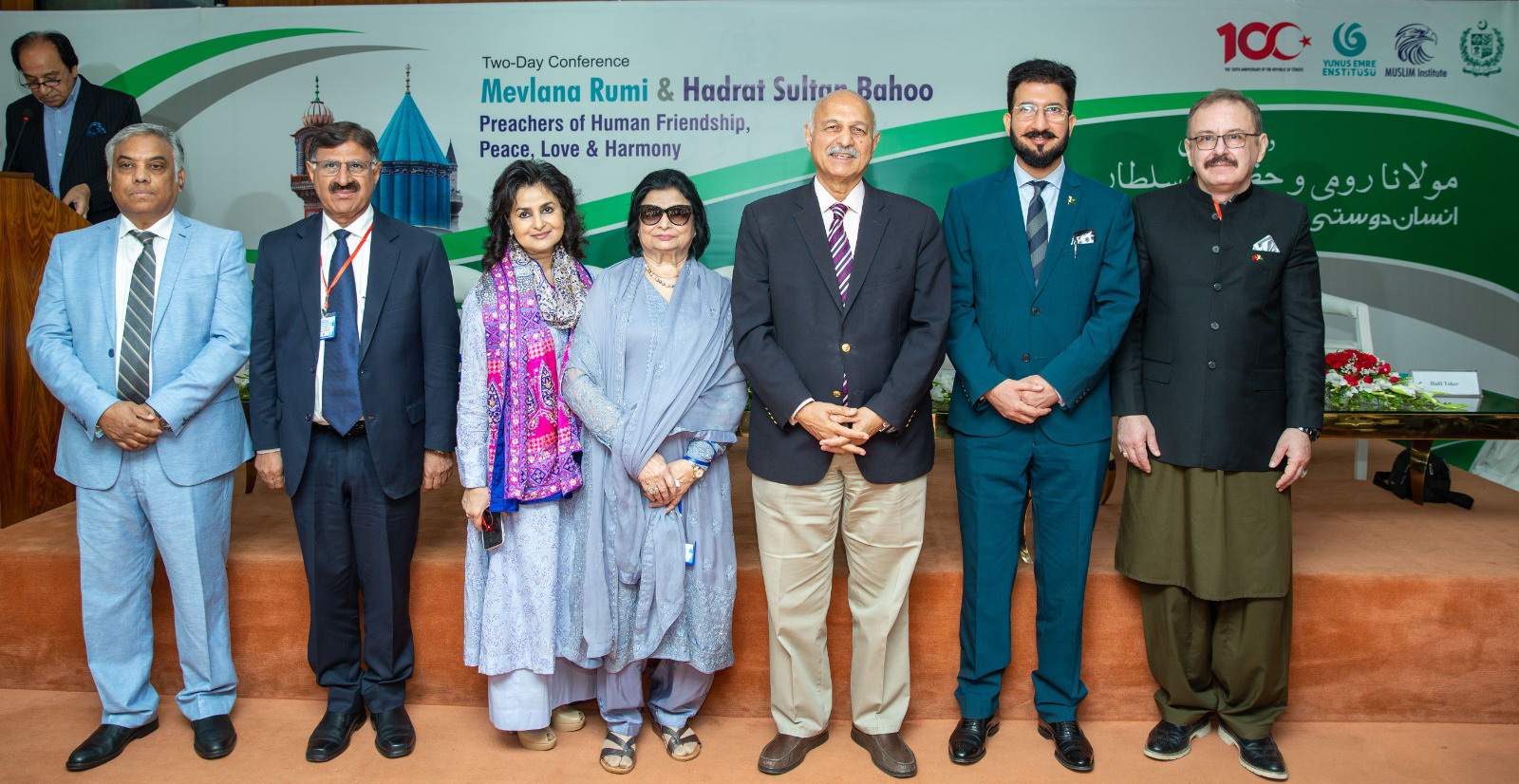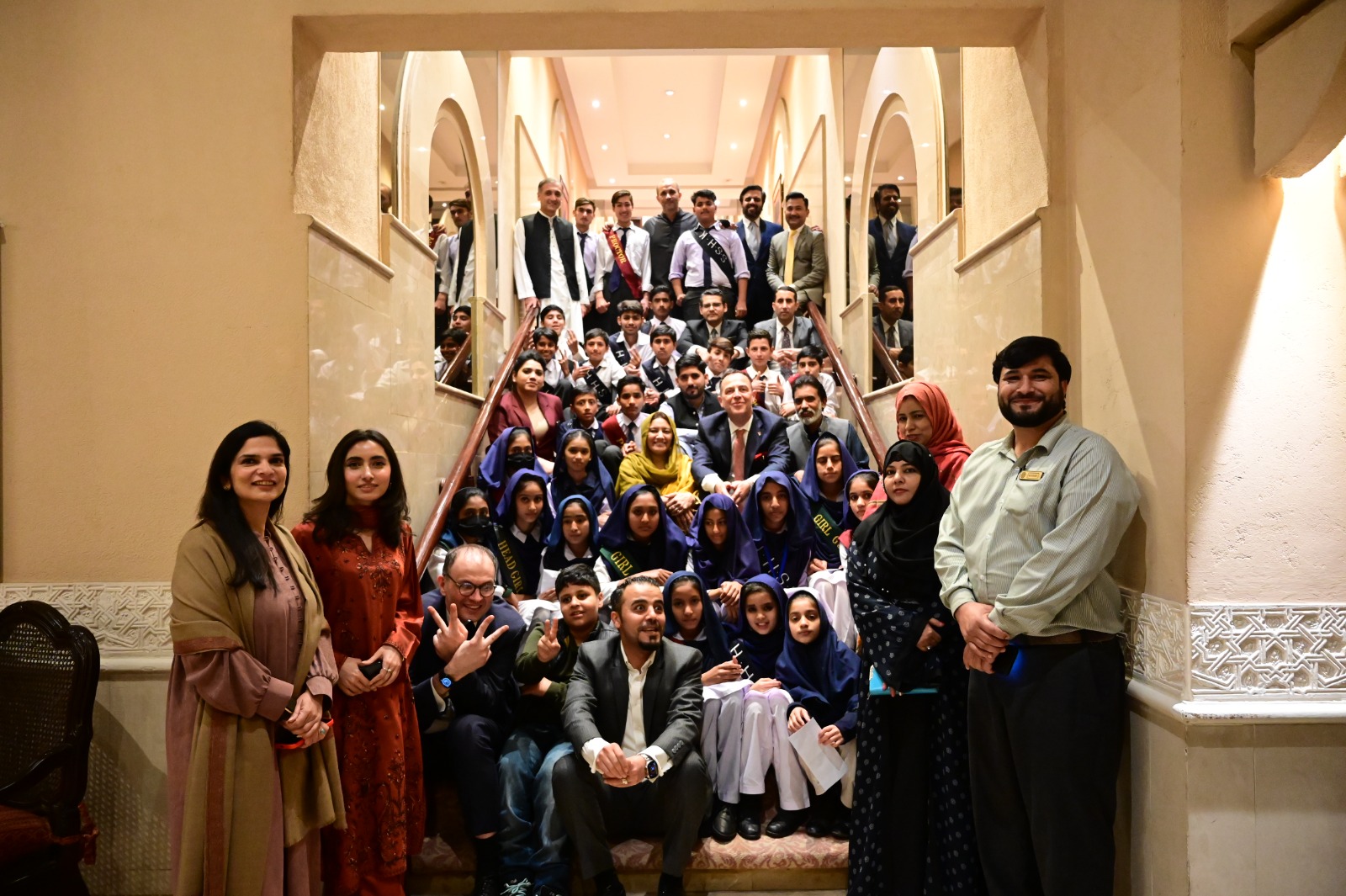Gender Studies Department Symposium Honors Women’s Role in Environmental Conservation
ISLAMABAD (NNP) In collaboration with ROZAN, the Department of Gender Studies organized a one-day symposium titled “Celebrating Earth Day – Women Weaving the World Together” to commemorate Earth Day and acknowledge the crucial role of women in environmental preservation and sustainability efforts. Held at the Susan B. Reading Room, the symposium gathered esteemed members of academia and students to participate in discussions, exchange insights, and foster collective action towards a greener and more equitable future.
Nadia Bukhtawer warmly welcomed attendees, emphasizing the significance of Earth Day and the invaluable contributions of women in environmental advocacy. Dr. Shahla Tabassum, Head of the Gender Studies Department, outlined the symposium’s core objectives, setting the tone for the day. A highlight was the keynote address by Dr. Zia-UL Islam, Former Director of the Pakistan Environmental Protection Agency (PEPA), who underscored the critical role of women in environmental sustainability and called for societal behavior change towards sustainability.
Following the keynote, a dynamic panel discussion titled “Women, Wisdom, & the World: Environmental Change and Green Future” was moderated by Dr. Sahira Zaman, featuring experts like Prof. Dr. Shazia Iftikhar, Prof. Dr. Rohama Gill, Dr. Sofia Khalid, and Ms. Abida Begum. The panel explored various themes, including current environmental challenges, women in STEM fields, youth engagement in conservation, and policy recommendations.
MPhil scholars from both departments contributed valuable insights, highlighting youth’s potential in environmental action and sharing community training experiences. The engaged audience posed inquiries about environmental challenges, actively participating in the dialogue.
The symposium concluded with the introduction of the pledge wall by Ms. Humaira Zulfiqar, offering attendees a platform to commit to environmental action. The event ended with gratitude to all participants, emphasizing the importance of collective action in addressing environmental challenges. Overall, the symposium served as a catalyst for dialogue and collaboration, reaffirming stakeholders’ commitment to a sustainable and gender-inclusive future.




